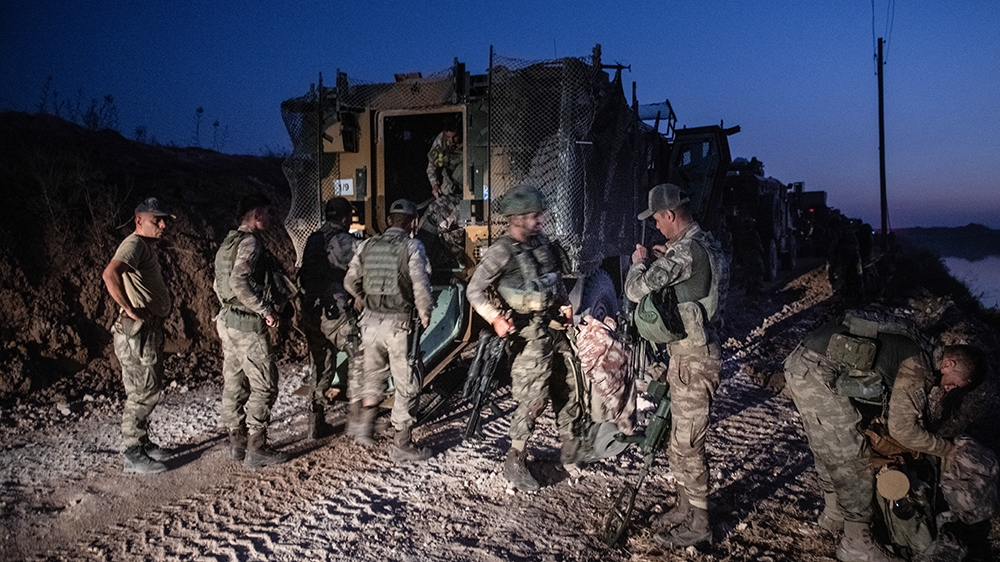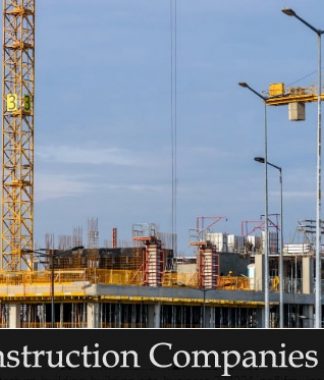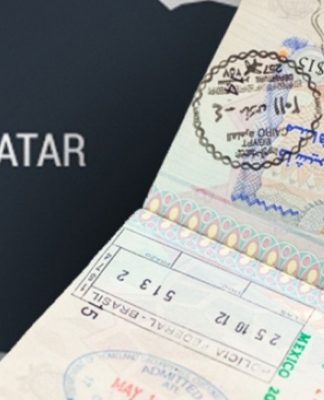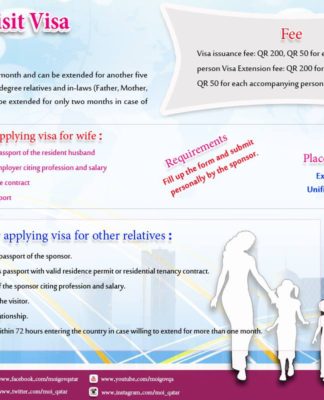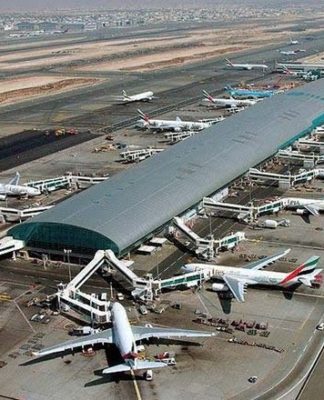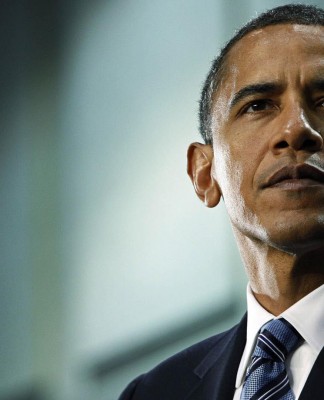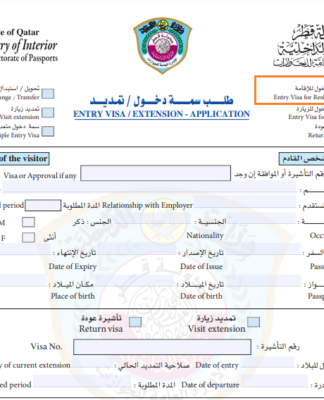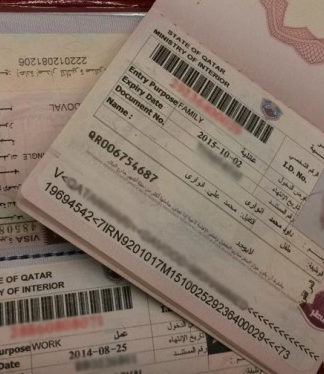Air raids and artillery fire pound border region before Turkish troops cross into Syria east of the Euphrates.
Turkish forces began a ground offensive in northeastern Syria hours after fighter jets bombarded the border region as Ankara finally unleashed a long-threatened assault on the Kurdish-held territory.
In a statement late on Wednesday, Turkey‘s defence ministry said troops had crossed into bordering Syria east of the Euphrates River alongside allied Syrian rebel forces.
The ground push came hours after aerial and artillery bombardment, with the Turkish military saying it had hit 181 “terrorist positions”.
Announcing the operation on Wednesday, Turkish President Recep Tayyip Erdogan said Ankara’s goal was to “prevent the creation of a terror corridor across our southern border and to bring peace to the area”.
|
|
Erdogan wants to drive the Kurdish-led Syrian Democratic Forces (SDF) away from the border region.
The SDF is the United States‘s main ally in the fight against the Islamic State of Iraq and the Levant (ISIL) but its fighters are viewed as “terrorists” by Turkey due to the group’s links with the outlawed Kurdistan Workers Party (PKK).
The Turkish president also wants to create a so-called “safe zone”, stretching some 30km (20 miles) deep into Syria, in which some of the 3.6 million refugees currently living in Turkey can be resettled.
Some 14,000 Syrian rebels belonging to the Free Syrian Army have travelled from the country’s northwest to aid Turkey’s push, Turkey’s Demiroren news agency (DHA) reported.
But Ankara’s military action caused alarm among world powers, while aid agencies warned the operation could spark a new humanitarian crisis and further displacement of people in the area.
US President Donald Trump, whose recent decision to pull troops from the area paved the way for Turkey’s offensive, called the operation a “bad idea”.
Amid sharp criticism at home and abroad over his pullback decision, Trump also threatened to wreck Turkey’s already-struggling economy if its forces went “off-limits”.
The UN Security Council is expected to discuss Syria behind closed doors on Thursday, diplomats told the Reuters news agency.
Exposed by Washington’s troop withdrawal, the SDF meanwhile appealed on Wednesday to the US and its allies for a “no-fly zone” to protect it from the Turkish attacks, which the group said had killed five civilians and three of its fighters.
The SDF, which holds the largest expanse of Syria outside of Russia and Iran-backed President Bashar al-Assad, had earlier pledged to defend the land it controls “at all costs” despite the departure of the US forces.
‘Fear and tension’
Several SDF military positions and villages in Tal Abyad, Ras al-Ain, Qamishli and Ain Issa were hit by the Turkish air raids, the group said, adding “dozens” of civilians were injured in the attacks.
SDF spokesman Mustafa Bali said Kurdish fighters had however managed to repel a Turkish troop advance at Tal Abyad.
Ground attack by Turkish forces has been repelled by SDF fighters in Til Abyad. No advance as of now.
— Mustafa Bali (@mustefabali) October 9, 2019
The multi-faceted Turkish assault meanwhile prompted civilians in the region to flee en masse, according to reports from the ground.
One resident of Tal Abyad who fled with his wife and mother by car to Raqqa, nearly 100km (60 miles) to the south, told the Associated Press news agency the road to the former de facto capital of ISIL’s self-proclaimed caliphate was packed with vehicles and families.
The resident, who gave his name as Maher, said that some people were fleeing on foot “to get away from the bombing”.
Al Jazeera’s Charles Stratford, reporting from the Turkish town of Akcakale, said there was “fear and tension” on both sides of the border over the unfolding events, which threaten to open a new chapter in Syria’s devastating eight-year-long war, and worsen regional turmoil.
“The big question is what kind of humanitarian crisis could such an operation cause,” Stratford said.
“There are hundreds of thousands of people on the Syrian side, many of whom we understand are now fleeing towns and villages that SDF forces are based in and are being targeted in,” he added. “A very worrying and terrifying experience is unfolding for many people.”
|
|
ISIL prisoners
Adding to the uncertainty is the precarious situation surrounding the thousands of suspected ISIL fighters being held in SDF-run detention camps.
Several international powers – including France, Germany, Britain and Saudi Arabia – have warned Turkey’s operation puts at risk the progress made in battling back the armed group, which at its peak controlled large swathes of Syria and neighbouring Iraq.
The SDF has warned that ISIL remains a threat in the region. On Monday, a day after announcing the capturing of an ISIL commander, the group warned a possible Turkish attack would “reverse the successful effort to defeat ISIS”.
On Wednesday, a Kurdish source and two US officials told the Reuters news agency that the SDF had halted operations against ISIL because of the Turkish offensive.
That report came as the Kurdish-led group said one of the prisons where suspected ISIL members were being detained had been struck in a Turkish air raid.
Washington had said Turkey would be responsible for all suspected ISIL fighters captured during the battle against the armed group in Syria, but Trump on Wednesday told reporters the US had moved some of the prisoners amid fears they could escape custody during the Turkish operation.
Speaking at the White House, the US leader said that some of the “most dangerous” individuals had been moved, but he did not say how many or where they had been taken.
“We’re putting them in different locations where it’s secure,” he added.
Umit Yalcin, Turkish ambassador to the UK, told Sky News on Tuesday that Turkey was able to “deal with” the ISIL captives.
“We will handle this issue with our allies in cooperation … We have that capacity and capability,” he said.
Fahrettin Altun, Erdogan’s communications director, also said on Wednesday Turkey was taking over leadership of the fight against ISIL in Syria.
Altun added that Turkey had no ambition in northeastern Syria except to neutralise the threat against Turkish citizens and bring an end to what he called “the yoke of armed thugs” in the region.
SOURCE: aljazeera.com














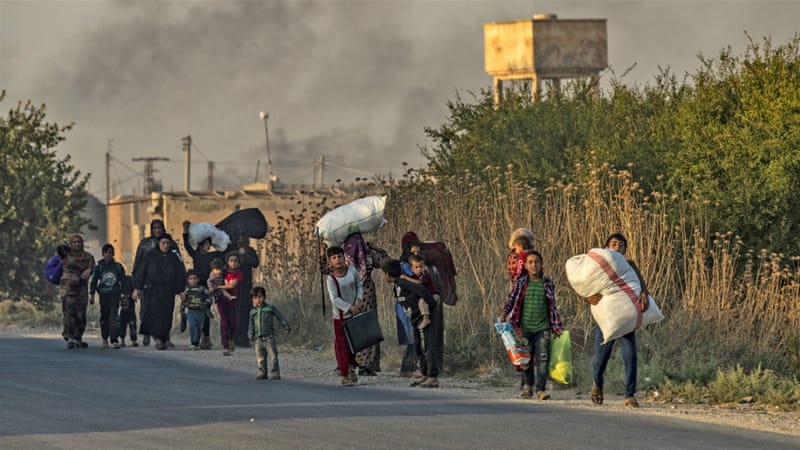

![People sit on belongings at a back of a truck as they flee Ras al Ain town, Syria October 9, 2019. [Rodi Said/Reuters] People sit on belongings at a back of a truck as they flee Ras al Ain town, Syria October 9, 2019](https://www.aljazeera.com/mritems/Images/2019/10/9/a093f0e19a614766aa6afce21569cbdf_18.jpg)
